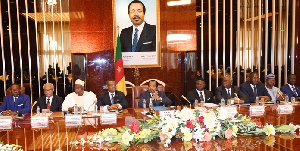Boriana Yontcheva, IMF Resident Representative in Cameroon, talks on plans to develop energy in the Central African sub-region.
What are the challenges in the 2014 Regional Economic Outlook for CEMAC countries?
Growth perspectives for Sub Saharan Africa and CEMAC countries are good. However, there are security, risks and health challenges. But specifically for the CEMAC sub region, we are seeing a significant drop in oil prices of about 20 per cent. It used to be 100 dollars a barrel, but today, it is 85 dollars. This will have a significant impact on the revenues of the countries of the sub region. This requires readjustments of fiscal policies.
Concretely, what can countries do to handle these challenges?
They can have very prudent fiscal policies; they can reorganize their expenditures, they can make sure that they streamline them, notably some exemptions that may not be very effective socially. As such, there is need to reprioritize expenditures to make sure that what is going out is for an excellent purpose.
The report raises a problem of infrastructure development. Precisely, what is the problem and what are you proposing as solutions to salvage the situation?
Infrastructure is very important for CEMAC and Africa. Obviously, there are some huge needs in terms of roads and energy. But what we have seen which is also very important is also to improve the efficiency of these infrastructure. The important thing is to improve the efficiency of public investments. So for this, you need to have a real strategy, you need to streamline the procedures and there is need for evaluations so as to get the best from the money being invested.
The report underlines that Cameroon has moved from a fragile economy to a resilient one. What does this mean, what is responsible for the move and what could be done to stay top?
The concept of a fragile State is a very complex one but it means generally that they could be some instabilities ranging from political to macroeconomic. So, Cameroon has made huge progress in terms of macroeconomic stability. I am talking about the reduction of debts and stability of public finances.
There has been progress for Cameroon over the past ten years coupled with the HIPC initiative which has allowed Cameroon’s public finances to advance. More can be done. For the future, it is very important to do what the government does in terms of public infrastructure. Structuring projects are very important here. It is also important to keep going on improving the governance and the business climate.
Infos Business of Monday, 10 November 2014
Source: Cameroon Tribune













